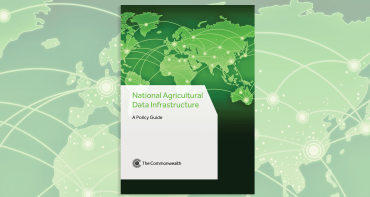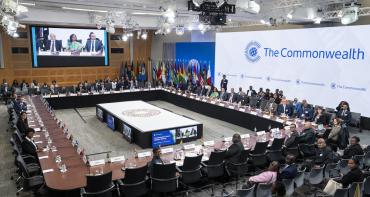The policies chosen by governments for managing revenues from mining and petroleum resources will help to determine their ability to achieve sustainable development, writes Dr Daniel Wilde, economic adviser at the Commonwealth Secretariat.

The policies chosen by governments for managing revenues from mining and petroleum resources will help to determine their ability to achieve sustainable development, writes Dr Daniel Wilde, economic adviser at the Commonwealth Secretariat.
Natural resource endowments matter to the wealth and prosperity of nations. Many developing Commonwealth member countries such as Botswana, Nigeria and Papua New Guinea receive more money from mining or petroleum than they do from aid or remittances.
Botswana illustrates what can be achieved through effective management of natural resources. During the 30 years from 1980 to 2010, diamonds were a major source of government revenue and export earnings, and Botswana’s economic development over this time was remarkable, with income per person more than trebling.
Yet the experience of many other Commonwealth member countries in using natural resource wealth to finance sustained economic development has been less sanguine.

The paper discusses how governments can tax the mining and petroleum industries to ensure the state receives a fair share of the revenue from those industries. It also discusses public policies for managing that revenue to maintain economic competiveness, reduce volatility in public spending and to fairly transfer wealth across generations.
The paper argues that governments should consider their administrative capacity and the degree of integration between the mining and petroleum industries and the rest of the economy when designing regimes to tax natural resources.
In broad terms, Commonwealth member countries which have significant natural resource reserves should concentrate on delinking public spending from volatile natural resource revenues. While those countries with more limited reserves should focus on ensuring that the consumption financed by natural resources revenues is sustainable over the long term.
The paper notes that negotiating tax rates with mining and petroleum companies is often an ineffective public policy. Companies often have a more detailed knowledge of the geology of natural resources and development costs than government, and this places governments at a disadvantage when negotiating tax rates.
Countries where the development of natural resources provide significant benefits other than through government revenue should favour more neutral tax systems than those where the government revenue received is the only significant benefit. Governments which are more experienced and capable in auditing companies’ costs should favour highly progressive tax regimes, while those with more limited capacity should favour less complex progressive regimes.
Establishing a sovereign wealth fund is one way of managing natural resource revenues, but such funds should have clear objectives and mandates, and appropriate checks and balances to insulate investment decisions from political interference. There should also be transparent systems for monitoring, managing and reporting the performance of these funds.
Ensuring that public policies transform natural resource wealth into sustained economic development for the benefit of all citizens is of paramount importance. For its part, the Commonwealth Secretariat is committed to playing the fullest role possible in assisting member governments to make good on their people’s aspirations for their natural resources.



